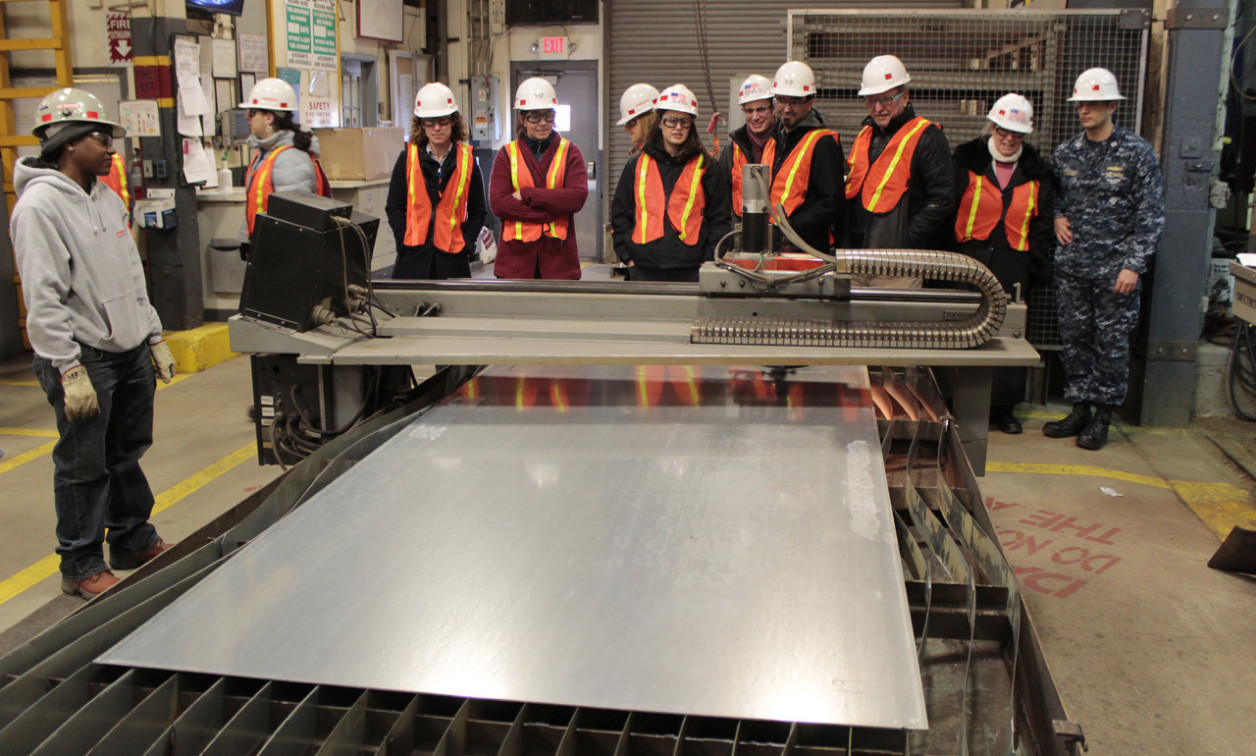DARPA Fab Lab to improve ship Navy repair and maintenance with 3D printers and other tools
NewsFebruary 16, 2015

WASHINGTON. Defense Advanced Research Projects Agency (DARPA) and U.S. Navy officials agreed to locate a fabrication laboratory, also called Fab Lab, at the Mid-Atlantic Regional Maintenance Center (MARMC, pronounced “mar-mack”) in Norfolk, Va., under DARPA’s Manufacturing Experimentation and Outreach Two (MENTOR2) program.
MENTOR2's goal is to reduce logistics supply chain costs to boost defense readiness by enhancing training and tools for operating, maintaining, and adapting complex military equipment in low-tech environments such as repairing unmanned aerial vehicles (UAVs) in austere locations or repairing ship systems at sea. Some machine shops and fabrication capabilities do exist now aboard ships and in deployed areas, but these facilities have only a fraction of the components necessary for deployed operations — mostly due to limited access to the adaptive manufacturing technology and comprehensive design expertise necessary for in-theater fabrication. MENTOR2 aims to give troops advanced tools and training, so they can quickly design and fabricate necessary components on the spot.
Fab Labs are design and fabrication shops that have modern digital tools and equipment—such as 3D printers, laser cutters, vinyl cutters for flexible circuit boards, routers, and digital design tools that use open-source software. DARPA is creating the Navy's customized Fab Lab via the Fab Foundation, a non-profit organization that oversees the international Fab Lab Network, a collaborative, knowledge-sharing community of more than 450 Fab Labs in 55 countries. The Fab Labs came out of the Massachusetts Institute of Technology’s (MIT's) Center for Bits and Atoms in 2001.
“We’re working with DARPA to develop curriculum and certification to support our warfighters — working to heighten their understanding of high-technology systems and how to use advanced digital fabrication and computation tools to maintain and adapt ship systems,” says Lt. Todd Coursey, MARMC Project Officer. “One of our desired outcomes is to develop a condensed additive manufacturing workforce training curriculum that could be sourced to Fleet and other Department of Defense personnel—truly enabling a more adaptive and innovative workforce.”
Fab Lab's installation and its initial operation is expected to happen in April this year.







